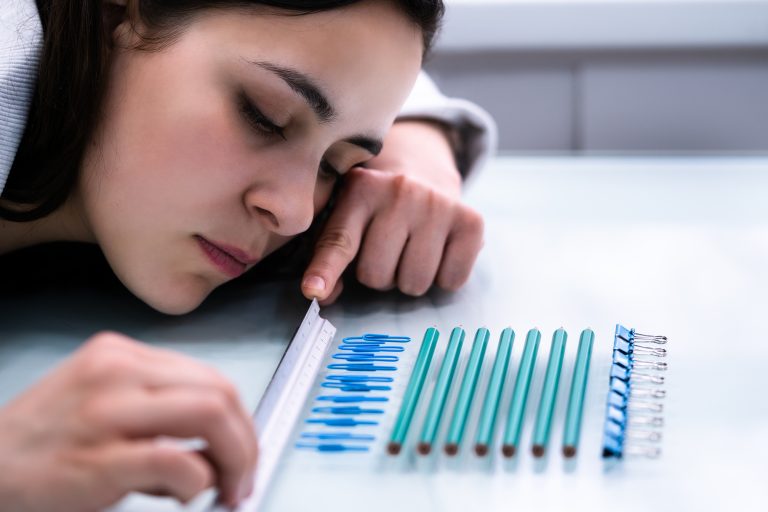ADHD Isn’t Just for Kids
Maria always thought she was just, “bad at adulting.” She’d show up late to work meetings, start five different tasks before finishing one, and constantly feel overwhelmed by the little things—like remembering to pay the electric bill or replying to a friend’s text from three days ago.
She blamed it on burnout or being “scattered.” After all, ADHD is something kids deal with—right?
Not quite.
ADHD, or Attention-Deficit/Hyperactivity Disorder, isn’t something that magically disappears when someone turns 18. In fact, for many adults like Maria, the symptoms often shift or evolve. Instead of climbing on desks or blurting out answers in class, adult ADHD often looks like disorganization, procrastination, emotional ups and downs, and trouble focusing at work or in relationships.
A common misconception is that ADHD is just a childhood phase. But the truth is, millions of adults live with undiagnosed ADHD, often misinterpreting their struggles as laziness, anxiety, or simply “not being good enough.” That misunderstanding can take a serious toll on mental health, relationships, and self-esteem.
But here’s the good news: once you recognize what’s going on, you can do something about it. With the right diagnosis and treatment, many adults find a fresh sense of clarity and control they never knew was possible.
If you or someone you love is struggling with focus, forgetfulness, or feeling constantly overwhelmed, you’re not alone—and help is within reach. At PsychPlus, our experienced professionals are here to guide you toward understanding your mind and managing ADHD with compassion and proven strategies.
What Adult ADHD Really Looks Like
When most people think of ADHD, they picture a hyper little boy bouncing off the walls, struggling to sit still in class. But in adulthood, ADHD doesn’t always look loud or obvious. Sometimes, it’s quiet, internal—and easy to miss.
Adults with ADHD often deal with:
- Restlessness— like a motor constantly running inside you
- Impulsivity—like blurting out a thought in a meeting or making a big purchase on a whim
- Trouble prioritizing tasks, especially when everything feels urgent
- Chronic forgetfulness—not because you don’t care, but because your brain feels like 30 browser tabs open at once
- Emotional dysregulation—strong reactions to small things, or feeling overwhelmed fast
It’s different from how ADHD shows up in kids, where hyperactivity and classroom disruptions take center stage. In adults, it’s more subtle but just as impactful. Instead of running around the playground, you’re pacing during Zoom calls. Instead of fidgeting in your seat, you’re fighting the urge to scroll endlessly on your phone mid-conversation.
Let’s say you’ve missed a few deadlines at work—not because you’re lazy, but because your brain keeps bouncing between tasks. Or maybe your partner feels unheard, because you accidentally zoned out during a serious talk (again). These things pile up and often leave adults feeling guilty, frustrated, and misunderstood.
And because these symptoms can mimic other conditions, like anxiety or depression, adult ADHD often goes undiagnosed. Many people spend years treating the wrong thing, never realizing there’s a different root cause.
Recognizing the signs of ADHD in adulthood is the first step to taking back control—not just over your productivity, but over your peace of mind.
Why Diagnosis in Adulthood Matters
Living with undiagnosed ADHD can feel like running a race with untied shoelaces—you’re always tripping, but you can’t quite figure out why.
Many adults with ADHD face constant work challenges, like missing deadlines or struggling to stay focused in meetings. Add in burnout from overcompensating, low self-esteem from years of feeling “not good enough,” and relationship tension from being misunderstood—and you’ve got a recipe for exhaustion.
You might hear things like:
- “Why don’t you just try harder to focus?”
- “You’re so smart, but you’re all over the place.”
- “You always forget things—are you even listening?”
Those messages stick. And over time, they create self-doubt that seeps into every part of life. That’s why getting diagnosed—finally putting a name to the struggle—can be a game-changer.
Breaking the Stigma
Here’s the truth: having ADHD doesn’t mean you’re broken or incapable. In fact, some of the most successful creatives, entrepreneurs, and thought leaders live with ADHD. They’ve learned how to work with their brains, not against them.
What Diagnosis Looks Like
If you’re wondering what the process involves, it’s not as scary or clinical as it sounds. Most adult ADHD evaluations start with a conversation. A licensed provider will ask about your history, behaviors, challenges, and strengths. Sometimes, you’ll complete self-assessment tools or checklists to spot patterns that point to ADHD.
And the best part? You don’t have to figure it out alone.
If anything in this blog resonates with you, it may be time to take the next step. You can book an appointment with a licensed specialist at PsychPlus to start the journey toward clarity, relief, and a plan that actually works for you.
Because you deserve to feel like your brain is working with you—not constantly against you.
The Science Behind Adult ADHD
Ever wonder why your brain seems to hit the gas and the brakes at the same time? You’re not imagining it—there’s real science behind ADHD, especially in adults.
At its core, ADHD is linked to executive functioning deficits—the brain’s ability to plan, prioritize, manage time, and regulate emotions. Think of executive functioning like your brain’s “control tower.” In ADHD, that control tower gets a little… foggy.
The dopamine system also plays a major role. Dopamine is the neurotransmitter that helps regulate attention, motivation, and reward. In people with ADHD, the brain’s dopamine pathways may not be as active or efficient, which explains why focusing on boring tasks feels nearly impossible—but staying up all night on a creative idea? Totally doable.
What’s fascinating is that adult brains with ADHD often show different patterns than children’s. While kids may display more hyperactivity and impulsivity, adults often have more internalized symptoms—like mental restlessness, chronic procrastination, or emotional reactivity.
For those curious about the deep dive into brain function and ADHD, check out The Science Behind ADHD: Brain Mechanisms and Research. It unpacks how brain chemistry and neural circuits contribute to ADHD symptoms and why these patterns shift with age.
Understanding the why can be empowering. It reminds us that ADHD isn’t a character flaw—it’s a neurobiological condition. And once we understand the root, we can finally stop blaming ourselves and start working with the brain we’ve got.
Treatment Options That Work
Treating adult ADHD isn’t about “fixing” you—it’s about finding tools that help your brain thrive.
For many adults, a combination of lifestyle adjustments, therapy, and sometimes medication makes a huge difference. The goal? To help you feel more in control, more focused, and less overwhelmed by everyday demands.
Everyday Tools that Actually Help
Start simple. Techniques like time-blocking, where you schedule chunks of your day for specific tasks, can be a lifesaver. So can mindfulness—a few minutes of slowing down and checking in with your body and breath can bring surprising clarity to a chaotic day.
Many adults also benefit from Cognitive Behavioral Therapy (CBT), which helps reframe negative thinking patterns, and ADHD coaching, which offers personalized strategies to manage distractions, prioritize tasks, and stay organized.
What About Medications?
Medication can be a game-changer—but it’s not one-size-fits-all. Adults often need different dosages or types of medications than children. The focus is on tailored treatment—figuring out what works best for your brain, lifestyle, and schedule.
And if you’re nervous about meds, that’s totally normal. Modern ADHD medications are more personalized and monitored than ever. Finding the right one can feel like turning the volume down on the noise in your head.
Want to explore your options further? A Guide to ADHD Medications: Finding the Right Treatment breaks down the choices in a clear, no-pressure way—perfect for anyone curious about what might help.
No matter where you’re starting from, treatment isn’t about changing who you are—it’s about helping you show up as your best, most focused self.
Coexisting Conditions and Misdiagnoses
Adult ADHD doesn’t always show up by itself. In fact, it often overlaps with other mental health conditions—like depression, anxiety, or past trauma.
This overlap can make things confusing. For example, someone with ADHD might feel constantly overwhelmed, forgetful, or emotionally drained. Those symptoms can easily be mistaken for depression. On the flip side, depression can make it hard to focus or stay motivated—just like ADHD.
It’s easy to see how misdiagnosis happens. One person might be treated for anxiety when their real struggle is attention regulation. Another might be told they’re just “burned out” when they’ve been quietly managing ADHD for years.
That’s why it’s so important to treat the full picture—not just the symptoms on the surface. When you understand what’s really going on in your brain, you can finally get the right kind of help.
In cases where ADHD and depression coexist, the right combination of support and treatment can make a huge difference. For those facing treatment-resistant depression, options like Spravato (a fast-acting form of esketamine) might help. You can read more about it here.
The bottom line? Mental health isn’t always straightforward. But with the right care and understanding, things can get a whole lot clearer.
You’re Not Alone — Finding Support
Getting diagnosed with ADHD as an adult can feel like a lot—maybe even a little lonely at first. But here’s the truth: you’re not alone. Not even close.
Millions of adults are discovering, often later in life, that their lifelong struggles with focus, time management, or emotional overwhelm weren’t personal flaws—they were undiagnosed ADHD. And with that clarity comes something powerful: a way forward.
Finding support makes all the difference. Whether it’s through therapy, ADHD coaching, or support groups, connecting with others who get it can be a game-changer. There’s comfort in hearing, “Me too,” especially when you’ve spent years thinking it was just you.
There’s no shame in seeking help. In fact, asking for support is one of the most courageous things you can do. And the more we talk about adult ADHD, the more we break down the stigma and open doors for others to do the same.
If you’re ready to keep learning and growing, take a moment to explore more helpful reads over on the PsychPlus Blog. You’ll find stories, science, and support that can help you navigate life with ADHD—one step at a time.
It’s Never Too Late to Understand Your Brain
ADHD doesn’t define who you are. It’s simply one piece of the puzzle that makes you who you are. Understanding it, however, can help unlock a world of possibilities—empowering you to manage your symptoms, make healthier choices, and feel more in control of your life.
To recap: ADHD in adults can show up as restlessness, impulsivity, trouble prioritizing, and emotional ups and downs. Getting the right diagnosis and treatment—whether through lifestyle changes, therapy, or medication—can help make a huge difference. And remember, you’re not in this alone—support is out there, from support groups to professional therapy.
If any part of this resonated with you, it might be time to take the next step and get evaluated. The sooner you get the help and clarity you deserve, the sooner you can start living better.
Ready to start your journey? Book an appointment today and let’s explore how we can work together to better understand your brain and your life.





